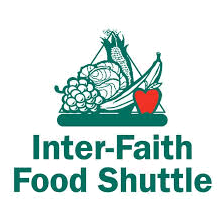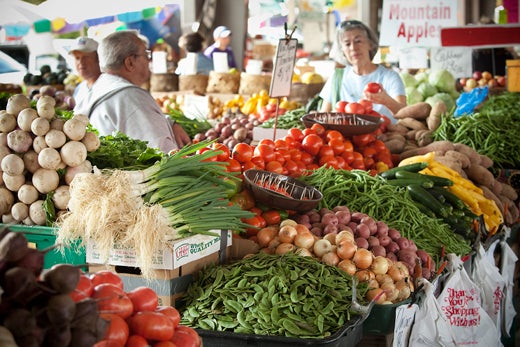WakeMed and Inter-Faith Food Shuttle Partnering to Make a Difference
May 9, 2016
By: Janelle Vadnais
 WakeMed has had a long-term relationship with the Inter-Faith Food Shuttle in supporting their mission to promote health and well-being for underserved communities.
WakeMed has had a long-term relationship with the Inter-Faith Food Shuttle in supporting their mission to promote health and well-being for underserved communities.
Since the fall of 2014, we have partnered with Inter-Faith Food Shuttle on the WakeMed Farmers Market to be a resource for local residents who don’t have easy access to healthy, fresh food. Below, we spoke with Elizabeth Weeks, Nutrition Programs Coordinator of the Inter-Faith Food Shuttle, to offer more insight into this collaborative effort.
Defining Food Deserts
A “food desert” is the term used to describe an area without reasonable access to a supermarket, and therefore without access to fresh, affordable produce. There are about 70 food deserts in the Greater Triangle Area. In the state of North Carolina, there are 340 food deserts across 80 counties.
How is an area designated a “food desert”?
A region is designated a “food desert” if it is a low-income area where a significant number of residents live more than 1 mile from a supermarket in urban areas and more than 10 miles from a supermarket in rural areas.
How serious of an issue is this? What are the implications?
This is a serious issue in terms of adverse health implications for populations within food deserts who do not have access to fresh, affordable foods that are necessary to sustain a healthy lifestyle. Research in public health shows trends of populations in food deserts being related to higher rates of obesity, type 2 diabetes, cardiovascular disease, and other diet-related conditions than the general population.

The Long-term Vision: Affordable, Accessible, Nutritious Food
Inter-Faith Food Shuttle’s vision is to end hunger by ensuring that every neighborhood and every family have access to nutritious, affordable food, as well as the skills to prepare healthy meals on a budget. Partnering with other organizations, such as WakeMed, allows us to bring fresh, healthy food into an area of need, and also teach skills for self-sufficiency. Our vision of a “Hunger-Free NC” is only possible through collaboration with other organizations who are serving communities in need.
What benefit do farmers markets have for the community?
Farmers Markets provide local community members the access to fresh, local produce, while at the same time providing local farmers with accessible markets for selling their products.
What is the difference between shopping at a farmers market vs. a grocery store?
When shopping at a farmers market, you know the produce you are getting is local and fresh – without the need for chemicals to preserve freshness over thousands of miles of transportation. Additionally, local farmers are typically available to discuss their farming practices– ex: organic, pesticide-free, chemical-free, etc. Farmers Markets also foster an environment of community and provide a connection between farmers and community members.
Shopping at Farmers Markets supports LOCAL farmers, which supports the LOCAL economy!
About Inter-Faith Food Shuttle
Inter-Faith Food Shuttle is an innovative hunger-relief organization serving seven counties in and around the Triangle. They believe hunger IS fixable if the community works together to do two things:
- Create sources of healthy food in every low-income neighborhood.
- Grow opportunities for people to provide for themselves by learning job skills or growing their own food.
Learn more about Inter-Faith Food Shuttle here. You can also follow them on Facebook.